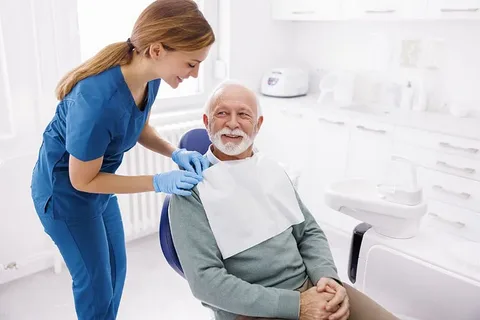As we journey through life, our bodies undergo many changes, and our oral health is no exception. While advancements in dental care mean we can keep our natural teeth longer than ever before, the aging process does bring a unique set of dental challenges for senior citizens. It’s easy to overlook these issues, but maintaining a healthy, comfortable smile is crucial for overall well-being, nutrition, and confidence in your golden years.
Understanding these common dental hurdles is the first step toward addressing them proactively. It’s about recognizing the signs, knowing what to expect, and empowering yourself to seek the right care to keep your smile bright and functional for decades to come.
The Impact of Dry Mouth (Xerostomia): More Than Just Thirst
One of the most pervasive dental challenges affecting seniors is dry mouth, medically known as xerostomia. This isn’t just a nuisance; it’s a significant health concern. Dry mouth is often caused by medications (which seniors typically take more of), certain medical conditions (like diabetes), or radiation therapy. Saliva plays a crucial role in oral health: it washes away food particles, neutralizes acids, and provides minerals that fight tooth decay.
Without adequate saliva, the risk of developing cavities (especially root decay), gum disease, and oral infections dramatically increases. Symptoms include a sticky feeling in the mouth, difficulty chewing, swallowing, or speaking, and persistent bad breath. Managing dry mouth through hydration, saliva substitutes, and regular dental visits is vital for preventing these secondary issues.
Root and Gum Disease: Hidden Threats to Teeth
Gum disease (periodontitis) is surprisingly common among seniors, and its progression can be particularly destructive. Years of plaque buildup, combined with other factors like dry mouth or chronic illnesses, can lead to receding gums. When gums recede, they expose the tooth roots, which are softer and more vulnerable to decay than enamel.
Untreated gum disease can cause painful infections, loose teeth, and ultimately, tooth loss. Beyond the mouth, chronic gum disease has been linked to other systemic health issues prevalent in seniors, such as heart disease, diabetes, and stroke. Regular dental check-ups and thorough cleanings are essential for preventing and managing gum disease, protecting both oral and overall health.
Tooth Loss and Bone Resorption: Beyond Just Gaps
While modern dentistry aims to preserve natural teeth, tooth loss can still be a reality for many seniors due to decay, gum disease, or trauma. A missing tooth isn’t just an aesthetic concern; it initiates a process called bone resorption, where the jawbone beneath the missing tooth begins to shrink due to lack of stimulation from chewing.
This bone loss can lead to changes in facial structure (a “sunken” appearance), affect speech clarity, and make it difficult to chew food effectively. It can also cause remaining teeth to shift, creating bite problems. Addressing tooth loss promptly, not just with dentures but with solutions that stimulate bone, is crucial for preserving oral health and facial aesthetics.
Worn Teeth and Fractures: Years of Wear and Tear
Decades of chewing, grinding, and the natural aging process can take a toll on tooth enamel. This constant wear can lead to teeth becoming shorter, developing cracks, or becoming more sensitive. Worn enamel exposes the underlying dentin, which can lead to increased sensitivity to hot, cold, or sweet foods.
Furthermore, weakened teeth from old, large fillings or previous dental work can become more prone to fractures, especially when biting down on hard foods. These issues can cause pain, make chewing difficult, and open the door to further decay or infection. Restorative solutions like crowns, bonding, or veneers may be necessary to protect and strengthen these worn or fractured teeth.
Challenges with Dentures: Slippage and Discomfort
For many seniors, dentures have traditionally been the go-to solution for replacing missing teeth. While modern dentures are more aesthetically pleasing than their predecessors, they often come with their own set of challenges. Common complaints include instability, slipping during speech or eating, discomfort, and the need for adhesives. This is precisely why exploring advanced options like dental implants has become a game-changer.
Ill-fitting dentures can cause sore spots, make it difficult to chew a wide variety of foods (impacting nutrition), and lead to embarrassment in social situations. The jawbone shrinkage associated with tooth loss can also cause dentures to fit poorly over time, necessitating frequent adjustments or replacements. This is where advanced solutions, such as dental implants, can offer superior stability and comfort for full-mouth restorations.
Conclusion: Empowering Seniors for a Healthy Smile
Aging brings unique dental challenges, from dry mouth and gum disease to tooth loss, worn teeth, and issues with dentures. However, none of these issues are insurmountable. With regular dental check-ups, proactive care, and the availability of modern dental solutions, senior citizens can effectively manage these challenges. Investing in your oral health throughout your golden years is an investment in your overall well-being, ensuring you can continue to eat comfortably, speak confidently, and share your beautiful, healthy smile for decades to come.
